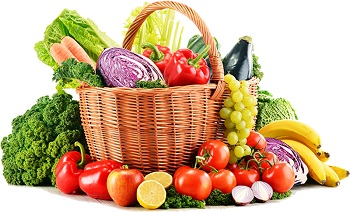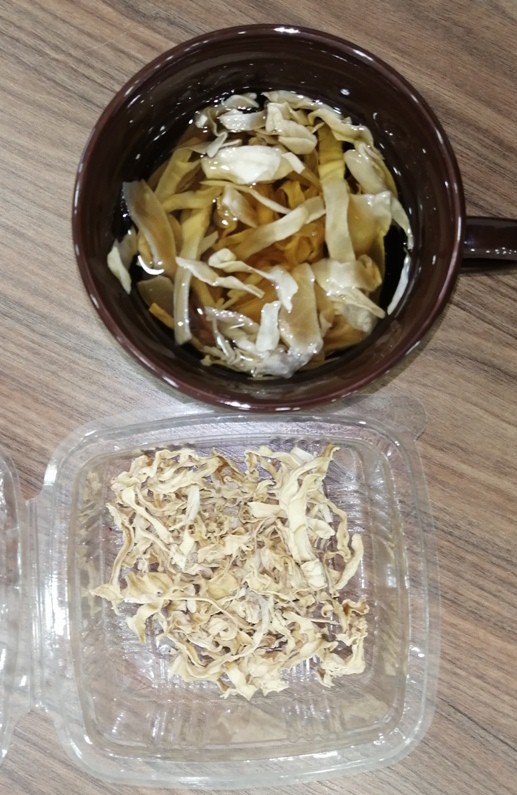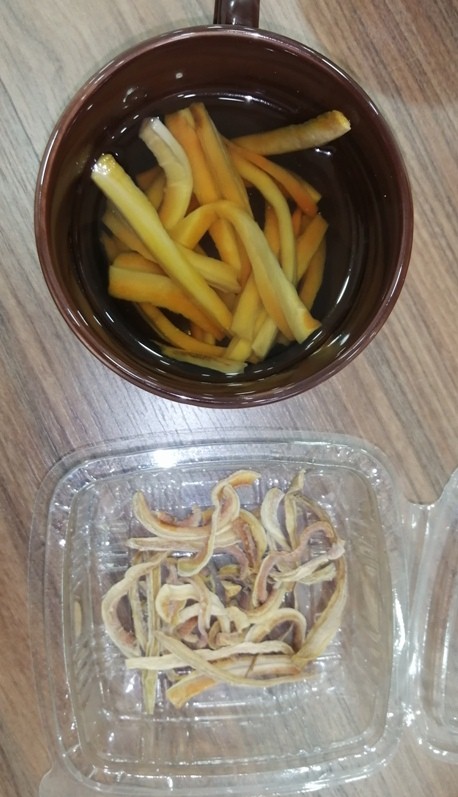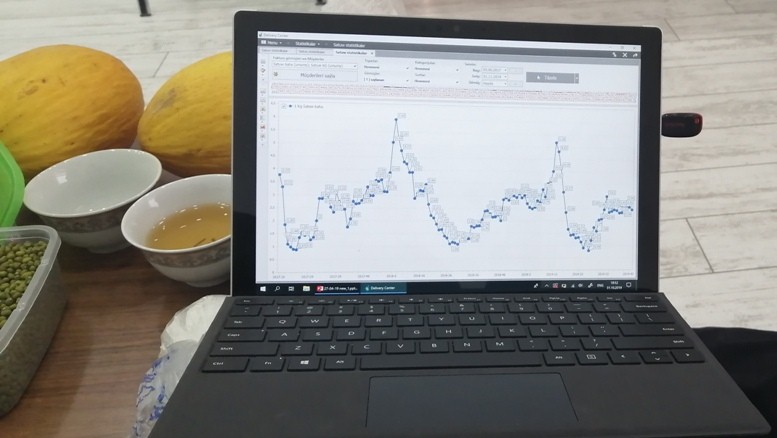Tariq Saeedi
The quality guidelines are definitely useful for the trader and buyers – they can help them make their choice based on the quality specifications determined by Dovlet and his team at Ter Onum.
The farmers also benefit in the sense that they can grade their produce for better positioning in the market.
However, the nature doesn’t care much about the guidelines.
What about the fruit and vegetables that despite the best care in selection and cultivation are visually not pleasing though absolutely fit for human consumption?
I asked Dovlet, what could be done with the produce that is not pretty to look at but otherwise quite suitable for human consumption.
“Dehydration,” He said.
He asked someone to bring dried cabbage and carrot.
They were in small plastic packages. Dovlet poured some boiling water into two cups and dropped some pieces of dried cabbage into one and dried carrot into the other.
Then he placed the saucers on top of the cups.
While he was explaining other ideas for innovation, about twenty minutes passed and he uncovered both the cups.
The cup with dried cabbage smelled like fresh cabbage and the cup with dried carrot had a little bit of aroma that was not quite like carrot.
I picked a piece of nearly rehydrated cabbage and chewed on it slowly. The taste was close to the fresh cabbage and there was some soft crunch to the texture.
The piece of carrot had a spongy crunch and taste was refreshing but had only a distant resemblance to the fresh carrot.
* * *
Ter Onum is experimenting with the dehydration of various fruit and vegetables.
By varying the conditions including the time and temperature they are trying to come up with the dried produce that will return to a nearly similar state of their fresh version when placed in the boiling water.
They are still not sure as to what would be the best use of these dried fruit and vegetables. Currently they are thinking of marketing them as ingredients for soup, ready meals, and downstream products in the fruit and vegetable sector.
* * *
Dovlet showed a software that has been developed by his IT team.
Every day, for the last several years, they have been monitoring the supply and demand position of a select group of fruit and vegetables. Their team collects data from a number of markets. They also observe the price fluctuations.
The software processes this data and come ups with certain predictions — when will a particular vegetable be in high demand, when will there be glut, when will there be shortage, during which period it will fetch high price, during which period it will sell at nearly throw away price.
The software actually goes beyond that. It gives prior indication as to when it would be advisable to import a particular fruit or vegetable, and from where; and when to export a fruit or vegetable and to which foreign market.
* * *
There was another product Dovlet was excited about.
It was milk from melon, actually milk from the skin of melons.
The idea was just that – an idea – when we talked but he told me recently that the experiment has been successful. The milk from the melon skin, he said, is unique in taste and will hopefully be received enthusiastically by the consumers.
The challenge, he said, is the shelf life. Even though the melon milk is quite impressive in taste, its shelf life is less than a day. They are working on some kind of natural solutions to increase the self life to several months.
The possible solution could actually be in the vicinity.
A military conscript who is a chemist by qualification has been allowed to work in the laboratories of the academy of sciences. He has found a way to increase the shelf life of fermented camel milk from a few days to a year.
This is great breakthrough.
The fermented camel milk has a tangy taste and is quite popular, especially during the summer season. Moreover, it has proven medicinal properties. Half a liter of fermented camel milk is equivalent to 24 units of insulin. For the diabetes patients, if they are on insulin, half a liter of this fermented camel milk in the morning and half a liter in the evening may replace the intake of insulin to that extent.
Also, the fermented camel milk is helpful in lowering the blood pressure.
Dovlet and other entrepreneurs are certainly aware of this development. Collaboration with the academy of sciences will help them find solutions for extended shelf life through natural methods.
* * *
The team at Ter Onum and other entrepreneurs, most of them quite young, are the prime asset of Turkmenistan.
Their hard work and talent is bringing them financial growth but they are spreading it in all directions. The success of an enterprise is valuable for the entire supply chain.
The government, any government, cannot go far without the active participation of the business, farming, and the manufacturing sector. On the other hand, the business and farming community can go nowhere without the support of the government. /// nCa, 7 February 2020
To be continued . . .



